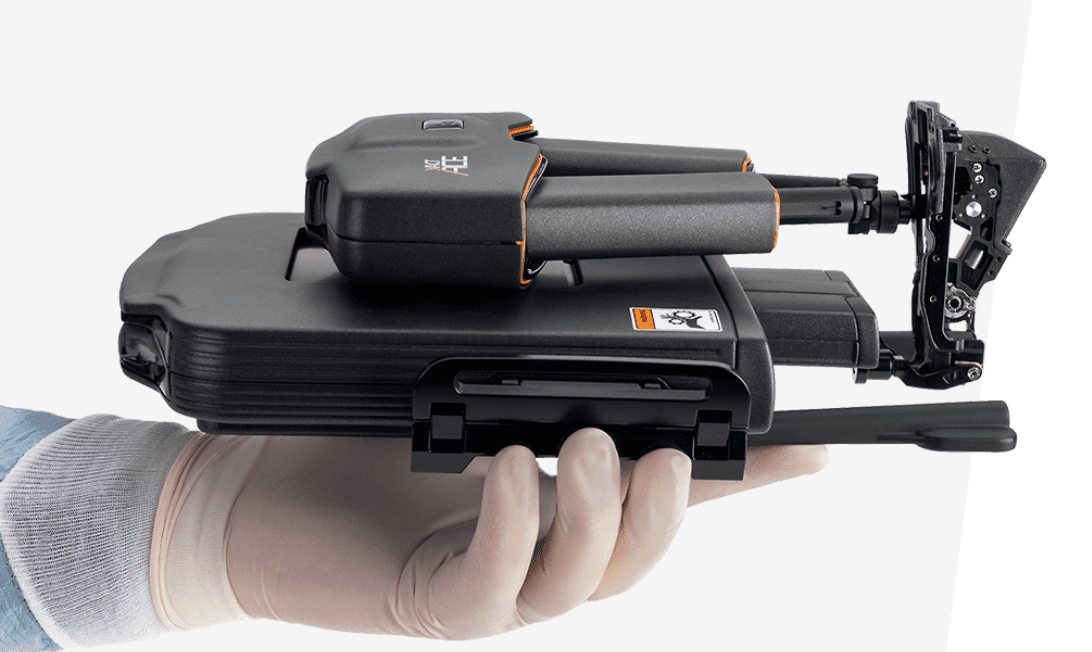Lahey Hospital & Medical Center (LHMC) and Sarasota Interventional Radiology (SIR) participated in a trial to evaluate the safety and accuracy of percutaneous procedures in the lung using the XACT ACE™ Robotic System for instrument insertion. The procedure has the potential to support the earlier and less invasive confirmation of lung cancer in patients.
XACT ACE™ Robotic System Pivotal Trial Enrollment Completed

Linkedin
Twitter
WhatsApp
Facebook
Copy Link
XACT ACE™ Robotic System: XACT Robotics announced it has successfully completed patient enrollment in the first U.S. study evaluating the system for use in percutaneous lung procedures including biopsies to confirm the presence of cancer.
The XACT ACE™ Robotic System is the world’s first and only “hands-free” robotic system that can help improve targeting accuracy, efficiency, and consistency in CT-guided percutaneous procedures including ablations, biopsies and targeted drug delivery.
Lung cancer is the second most common form of cancer around the world and millions of percutaneous procedures are performed in the lung each year. When using traditional manual methods to reach areas of interest in the lung, clinicians will sometimes suggest that patients wait until the lesion becomes larger and easier to access. Use of a robotic system may help access areas in the lung earlier, potentially supporting earlier diagnosis and treatment.
“Even among the most skilled radiologists, efforts to reach small areas of interest in the body, especially in the lungs, can be challenging,” said Sebastian Flacke, MD at LHMC. “With the completion of this study, we can more precisely assess the ability of the XACT ACE Robotic System to help us reach target areas in the lung in a single insertion with a very high level of accuracy.”
During procedures with the XACT ACE™ Robotic System a physician plans the route of an instrument and the robot then inserts and steers the instrument directly to the area of interest, typically reaching the target on the first insertion. In many cases during percutaneous procedures, the area of interest moves during instrument insertion, making it necessary to reinsert an instrument to reach the target. With the XACT ACE™ Robotic System, the advanced algorithm and steering mechanisms can reformulate the insertion pathway to continually remain on route to reach a specific target, even if it moves during the procedure, maximizing the rate of success on the first insertion.
The pilot trial primarily looked to evaluate safety of the XACT ACE™ Robotic System when used in percutaneous procedures in the lung. Secondary performance evaluations included the proportion of procedures in which the instrument reached the pre-defined target based on the physician’s determination and CT imaging confirmation. The study also looked at system accuracy, which was defined as the measured distance from the tip of the instrument to the target location at the end of the insertion.
“The use of the XACT ACE™ Robotic System to help radiologists reach small areas of interest in the lung is another major milestone showing the potential benefits of this technology for patients and clinicians,” said Chen Levin, CEO, XACT Robotics®. “The outstanding work of the radiologists at LHMC and Sarasota Interventional Radiology significantly expands our understanding of the potential of our technology to set the new standard in percutaneous procedures in the lung with the potential to reduce risks for patients while supporting earlier diagnosis and treatment.”